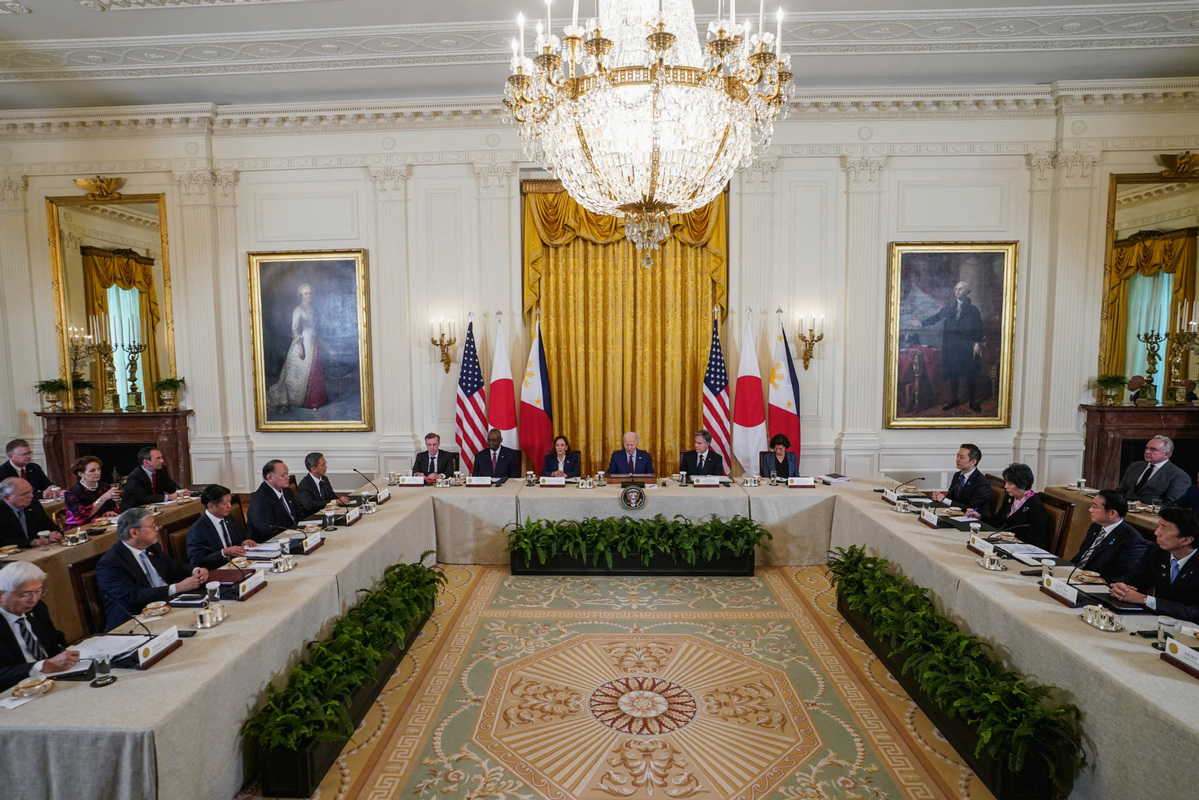Trilateral statement a firm commitment to troublemaking in the Asia-Pacific region


The "historic" first summit of the leaders of the United States, Japan and the Philippines produced a "Joint Vision Statement" that laid out an expansive framework for the trilateral partnership.
But the statement makes headlines owing more to its undisguised geopolitical intentions. As international observers pointed out, it represents a substantial new step in the US-led attempt to contain China.
Just as Japanese Prime Minister Fumio Kishida unprecedentedly called China out while addressing the US House of Representatives, the joint statement made no secret of the countries' strategic definition of China as a common threat. As a result, the entire scope of their proposed cooperation appears tailored with that in mind.
Aside from its immediate desire for outsider support for its provocative activities in the South China Sea, an important factor driving the Philippines into the grouping is its bid to acquire development assistance. But there is no development for development's sake here. The statement's narrative about development, from critical and emerging technologies to supply chain resilience, seems copied and pasted from Washington's geopolitical playbook for the "Indo-Pacific". The Luzon Economic Corridor that was announced, for instance, is not simply a connectivity project that connects the Philippines' Subic Bay, Clark, Manila and Batangas areas. It is, as the statement says, the first such project under the Partnership for Global Infrastructure and Investment, and a part of the Partnership for Global Infrastructure and Investment — "Indo-Pacific" Economic Framework Accelerator. Both the partnership and framework are mechanisms designed to bolster the US-led strategic competition with China.
The rhetoric sounds more confrontational on security, portraying Beijing in explicit terms as the troublemaker in the East and South China seas and in the Taiwan Strait. The world can see clearly that China is a defender of peace and stability in the region. It is the US gang that is calling white black by accusing China of "dangerous and aggressive behavior".
The US' collusion with Japan and the Philippines threatens common development of the region and harms common interests of the countries, while China is a steadfast contributor to regional peace and prosperity.
Tellingly, the trilateral statement tries to pin the blame on China for "dangerous and destabilizing conduct" at Huangyan Island. And it calls on China to abide by what the latter has repeatedly declared as illegitimate — the 2016 Arbitral Tribunal decision — calling it "final and legally binding".
Some may see in the trilateral partnership an additional insurance along with the QUAD, AUKUS and the US-Japan-Republic of Korea alliance. But it certainly wouldn't bring the "free and open 'Indo-Pacific' that is connected, prosperous, secure, inclusive, and resilient" the statement pledged. The three countries are obviously at odds with regional efforts to maintain peace and prosperity, as their approach is inherently dividing, exclusive and confrontational.

































